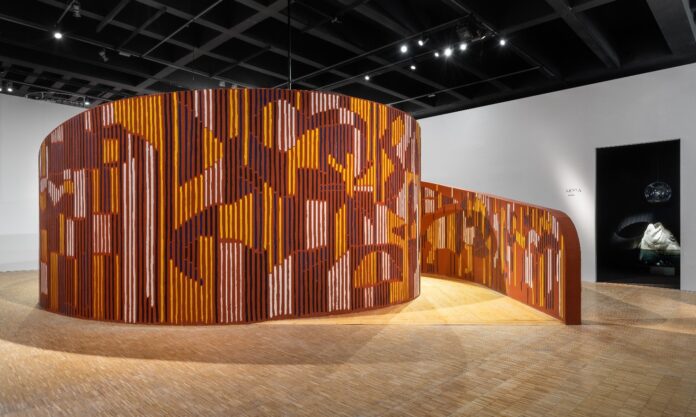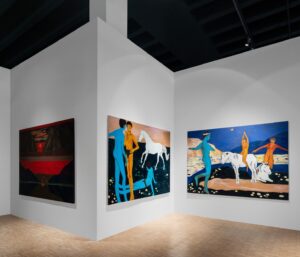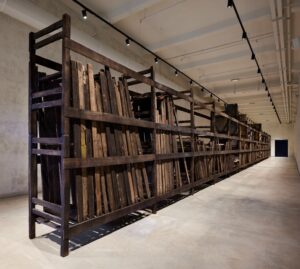
An Interview with Gaetano Castellini Curiel, author of the book ‘Soft Power and the Art of Cultural Diplomacy’ and Deputy Coordinator of the Promoting Committee for Rome’s candidacy to host Expo 2030 and Head of Task Force for Rome EXPO 2030.
Gaetano Castellini Curiel, author of the book ‘Soft Power and the Art of Cultural Diplomacy’ and Head of the Rome Expo 2030 Task Force, is in Accra with the aim of promoting Rome’s candidacy to host, in seven years, the most important exhibition at global level. The Expo, or Universal Exposition, aims to offer a platform for dialogue between all countries on development and progress by bringing to the forefront those innovations capable of triggering a concrete improvement in people’s living conditions at economic, social, environmental and cultural levels.
Rome has proposed as the theme of Expo 2030 ‘People and Territories: Regeneration, Inclusion and Innovation’, with the intention of gathering and presenting in a single major event proposals and contributions from each country to tackle today’s most critical challenges. During the Expo, these topics will also be discussed at a high level to introduce new solutions, ideas and concrete strategies. The event, among other things, will coincide in time with the next Jubilee proclaimed by the Catholic Church and the deadline set for the 17 Sustainable Development Goals adopted by the United Nations.
Castellini Curiel has chosen Ghana for his long journey to illustrate the cultural, ethical, political and economic value and significance of the Expo Roma 2030 proposal all over the world. We sat down with him at the +233 Jazz club.

Ghana, explains Mr. Curiel, is proving to be a magnificent laboratory for the development of new cultural proposals capable of linking tradition and modernity with freedom of thought and a creative approach; and many of these proposals have begun to be well known and valued in Italy as well. Perhaps the most renowned and respected aspect of Ghana to Italians is its political culture, its mark as a peaceful democratic country respecting human rights. I think there is a word that distinguishes your country in the world, and it is ‘Akwaaba’: Ghana and its people really make hospitality a crucial value.
That is why I wanted my journey to start in Accra: Ghana has all that is needed to lead the rising of a significant African soft power. By ‘soft power’ I mean the ability to develop and make use of art and culture in the context of international relations, ‘exporting’ them not only for economic benefit, but also and above all to consolidate a geopolitical role.
The strength of Rome’s candidacy is the will to promote inclusive partnerships and joint projects with each participating country. Such projects will be exhibited in national pavilions, offering visitors an extraordinary showcase of innovative solutions and visions rooted in the various historical and cultural paths. In such a context, which we want to be genuinely multilateral and UN SDGs-oriented, Ghana will have an important occasion to unfold and showcase its potential.
Q. What particular aspects of our multifaceted cultural reality are you referring to? From an Italian and European point of view, what appears to be the most effective arguments for the soft power policy of our country?
First of all, not only from an Italian and European perspective but also a global point of view, it should be highlighted that UNESCO – the United Nations specialised agency for culture – has nominated Accra as the world capital of books for 2023. Before Accra, they were ‘capital of book cities’ such as Madrid, New Delhi, Montreal, Buenos Aires, Bangkok and Athens; in 2024 it will be the turn of Strasbourg, capital of the European Union. This is the motivation for this very important international recognition:
“The city of Accra was selected for its strong focus on young people and their potential to contribute to the culture and wealth of Ghana”. But certainly, the high quality of new Ghanaian literature, widely translated all over the world, has also played its part in the choice of Accra by UNESCO.
In this regard, from an Italian point of view specifically, I am pleased to point out that the translations into my language of Ghanaian authors often proposed by leading publishers mainly concern fiction written by women. Leading the way with her novel ‘Ghana Must Go’, published in Italian in 2013, was probably Taiye Selasi; a British citizen and daughter of a Ghanaian surgeon who lived for several years in Rome. Much appreciated today are also the works of Ayesha Harruna Attah, a native of Accra who studied in New York and returned to Africa to begin writing. Considerable interest has recently been aroused in the translation of ‘His Only Wife’, the first narrative work of the Ghanaian feminist scholar of Liberian birth, Peace Adzo Medie.
Q. And beyond literature and books?
I would first mention contemporary art. In recent months, your country has been present in Italy simultaneously with high-level exhibitions at three venues of the utmost importance. Ghana was well-represented with its own national pavilion at the Venice Biennale. It is one of the most prestigious and authoritative group exhibitions in the world, and the Ghanaians have brought the exhibition ‘Black Star – The Museum as Freedom’ which investigates the theme of freedom with large-scale installations by Na Chainkua Reindorf, Afroscope and Diego Araúja, proposed in an installation designed by architect DK Osseo Asare. The curator of the pavilion is Nana Oforiatta Ayim, director of the ANO Institute of Arts & Knowledge in Accra and Director-General of the Institution for Museums and Cultural Heritage. Ghana had already participated in the Venice Biennale in 2019, finding great interest with the work of Ibrahim Mahama.
Gideon Appah represents Ghana at the Milan Triennale, another key event on the Italian art scene which this year has the general title ‘Unknown Unknowns: An Introduction to Mysteries’ and gives the African continent an absolutely central role. The new series of paintings by Appah features figures in positions of leisure and depictions of rituals in areas where land and sky meet to create a world where romance is radical, a world made of mystery. Ghana is one of the six African states represented at Triennale Milano this year among the 23 international participations.
Finally, there’s a solo exhibition by a brand-new Italian cultural institution, the Eataly Art House Foundation E.ART.H. of Verona. Mahama returns to Italy with an unprecedented exhibition project conceived specifically for the spaces of E.ART.H. – in which she combines a nucleus of new collages with a large installation conceived as a tall, wooden rail that unfolds occupying the Foundation’s entire corridor. The co-presence in Italy of three important exhibitions dedicated to Ghana is certainly no coincidence. It is evidently a significant trend that represents an opportunity for soft power, which is certainly worth following up on.

Q. What else?
The music. More precisely Accra jazz music, which has developed a very particular union between the legacy of John Coltrane and the Ghanaian musical and cultural tradition. Italian fans have come to know it thanks to the translation of Steven Feld’s book Jazz Cosmopolitanism in Accra: Five Musical Years in Ghana. The musical project Accra Trane Station and musicians like Nii Noi Nortey and Nii Otoo Annan have become points of reference for those who are looking for a jazz capable of detaching itself from the prevailing academicism on the European and American scene.
Q.I would like to conclude the interview by asking you what are the cultural policy actions which Italy currently conducts in Ghana, and more generally what are the most effective tools of your soft power in the African context?
On this point I would like to point out the scholarships Italy makes available to Ghanaian students through the Italian government, regional authorities and universities – the central and leading role of SMEs – let me mention first the presence, in Accra, within the Embassy of Italy’s premises the Italian Trade Agency office; and then also implementation of the Ghana Private Sector Development Facility programme; transfer of techniques and know-how particularly, but not only, in the agribusiness sector; enhancement of the Italian food and wine sector, also through promotional events such as the recent edition of Italian Cuisine Week in the World; meetings with Italian authors in Ghana; exhibitions dedicated to arts and literature; and finally sport, with particular reference to football.
President Nana Akufo-Addo in his document Ghana Beyond Aid Charter and Strategy Document writes: “Therefore, as part of the import substitution drive, there is a need to amplify the role of culture, drama, music and all other such opportunities to create taste and demand for locally manufactured products. There is a need for renewed commitment to eat Ghana, wear Ghana, drink Ghana, listen Ghana, watch Ghana and celebrate Ghana”.
From 2019 until today, the importance and reputation of Ghanaian culture has increased significantly and now represents a valuable good to export for both economic and soft power purposes.









